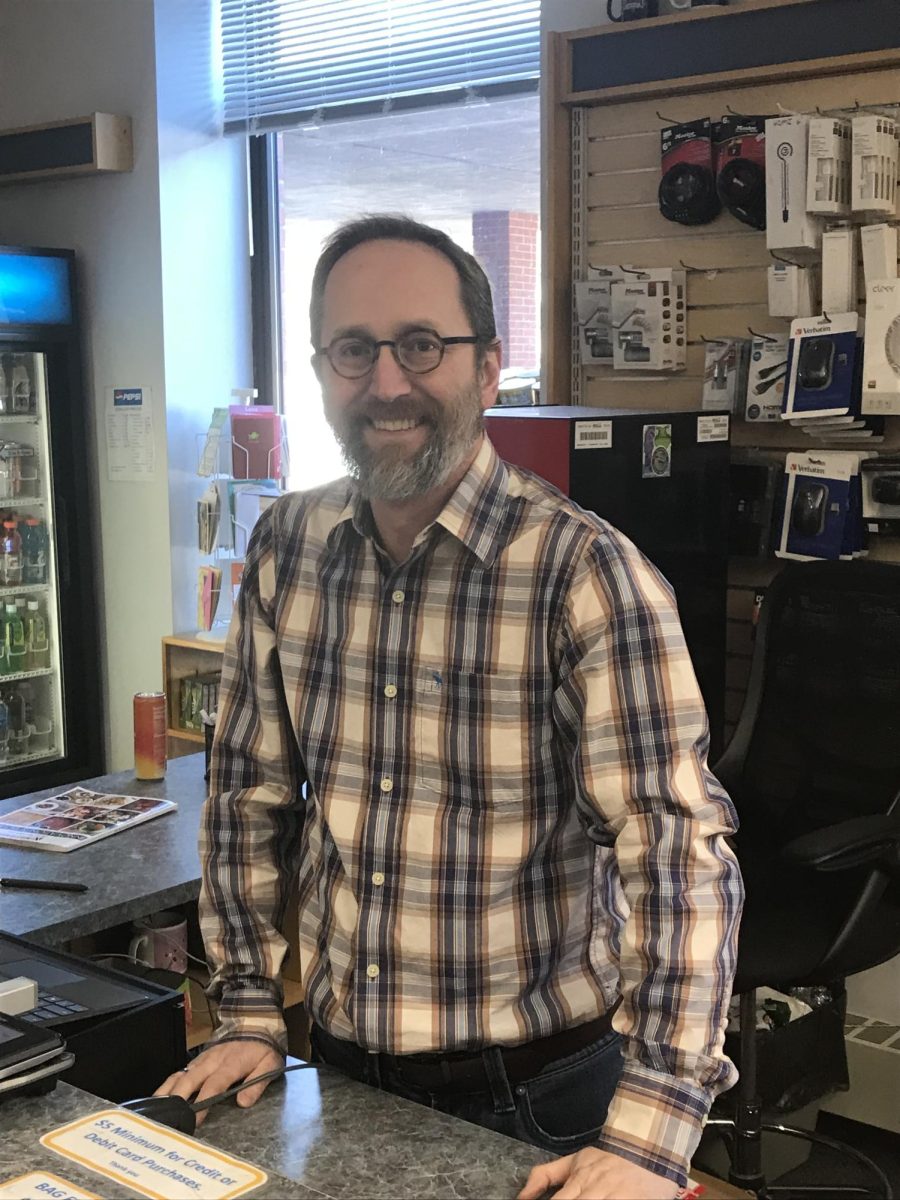
Jamie Harvey works as a Research Services Librarian here at Landmark College, and much of his job requires him to support students. He is also the leader of the Student Government Association, whose purpose is pretty self-explanatory: a self-representing body for the students at Landmark College. As a leader, Jamie strives to create an environment in which everyone feels valued and encouraged to take the initiative. He’s been inspired by historical figures such as Mahatma Gandhi and Dr. Martin Luther King Jr., both very good inspirations when it comes to making others feel valued.
Jaime’s journey to where he is today has been shaped by a combination of many things, among them personal experience, learning from mentors, and self-reflection and development. He has sought out opportunities to learn and grow, embracing challenges to build his skills rather than running away from them. Rough patches are an inevitable part of every process, and Mr. Harvey has handled them well. He told me that maintaining his self-confidence was a challenge early on for him. Before he was a librarian, he worked as a database administrator tasked with migrating data from one platform to another. In addition to self-confidence, he also struggled with mastering the executive functioning skills necessary for managing a project such as this. To build his self-confidence, he did two things, one of them being building a roadmap of the project to break it down into manageable parts to make it less overwhelming. The other thing he did to build his self-confidence was committing to hands-on training with the new platform (problem solving). Developing a vision and investing time into perfecting his craft, allowed him to lead his team with confidence and expertise.
One of the reasons Jamie is an effective leader, according to my fellow student, Will Donohue, is that he listens to colleagues, students, and the community. Will has been influenced by him because of his positive attitude and kind personality.
Mr. Harvey displays a number of key traits discussed in the text Introduction to Leadership: Concepts and Practice,written by Peter Northouse . An excerpt from this book states that, “Climate refers to the atmosphere of a team or an organization. It is defined as people’s shared perceptions of the way things are in an organization (Reichers & Schneider, 1990). This includes people’s general thoughts and feelings about the activities, procedures, and assumptions of a group, which may fluctuate. For example: “This is a laid-back place. People aren’t rushing around; they’re willing to stop and answer questions if you need help with a project.” Or: “This seems like an unfriendly place. People aren’t making eye contact with each other and rarely smile. You hardly hear any conversations taking place.” A positive climate is shaped by the degree to which people feel they are supported, appreciated, and encouraged for their roles in the organization. A constructive climate is just that: an atmosphere that promotes group members’ satisfaction and achieving their personal best. “As mentioned at the top, as leader of the Student Government Association, something Jamie strives to do is create a constructive climate. He has a clear vision: to give the students a platform to voice issues they feel are important to them. Jamie himself believes that being an effective leader is a balance of empowering others and providing guidance. One of the challenges that comes with it is the balance between providing guidance and allowing autonomy for people to grow, make mistakes, and learn to be leaders in their own right.
These traits are also very important when it comes to leading a group of students. The SGA represents the collective opinions of the students here at Landmark College. Just like in our federal government, everybody is going to have issues that they feel strongly about in one way or the other. Not everybody is going to agree on everything. An effective leader finds a way to reach a compromise when two or more members are in conflict with one another. Jamie is an effective leader because of his willingness to listen to the community and the issues that are important to them. It is because of strong leaders like him that the Landmark College community, and society as a whole, can continue.
References:
- Northouse, Peter G. Leadership: Theory and Practice. 5th ed., SAGE Publications, 2007, RedShelf, https://platform.virdocs.com/r/s/0/doc/1491526/sp/234155724/mi/691730010, Accessed 6 Nov. 2023.
- https://www.landmark.edu/student-life/our-community/leadership-opportunities/student-government-association






